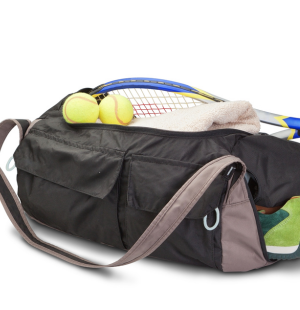
How to Prepare for Match Day
🎒 A Parent’s Guide to Helping Young Players Compete with Confidence
Tennis matches aren’t won on the court alone—they’re influenced by everything leading up to that first serve. A well-prepared player arrives on match day calm, focused, and mentally and physically equipped.
At FOFTA, we believe match day is a learning experience, not just a performance test. Whether your child is entering their first tournament or building consistency in competitive play, your support and preparation can make a big difference in how they feel and grow.
Below are some tips to help your child prepare the right way.
✅ 1. Pack the Night Before
Avoid last-minute stress by preparing gear early. Your child should pack their own bag with your guidance (this builds responsibility).
Essentials to bring:
- Rackets (at least two, if available)
- Water bottle + electrolyte drink
- Towels
- Snacks (bananas, granola bars, light carbs)
- Hat/visor and sunscreen
- Extra clothes (shirt, socks, shorts)
- Tennis shoes (don’t wear them to the court—change into them)
- Balls (if required by the event)
- Notebook or match log (for post-match reflection)
📌 Parent Tip: Encourage your child to use a checklist—they should know how to prepare on their own by age 10–12.

🕰️ 2. Arrive Early
Plan to arrive at least 30–45 minutes early to:
- Check in at the tournament desk
- Warm up physically and mentally
- Go over any rules or reminders calmly
- Avoid rushing, which creates tension
📌 Mental Edge: A calm start leads to a clear mind on the court.
🔄 3. Warm Up the Right Way
A proper warm-up should activate the body and get the mind in competition mode.
Suggested routine:
- Jog or dynamic movements (jumping jacks, side shuffles)
- Shadow swings and footwork drills
- Practice serves, volleys, and overheads (if warm-up court is available)
- Mental rehearsal: visualize the first point, routine, and mindset
📌 Reminder: The warm-up isn’t about fixing strokes—it’s about waking up the body and settling the nerves.
🧠 4. Discuss Strategy, Not Pressure
Match day is not the time to introduce major technical changes or overwhelm your child with too many instructions.
Instead, a reminder to:
- Keep it simple: “Stick to your strengths”
- Reinforce their routines (serve rituals, between-point resets)
- Focus on: attitude, effort, sportsmanship
📌 Say this instead of “You need to win”: “Play with confidence. Compete with effort. Learn something today.”
🙌 5. Model Calm Energy
Your body language and voice help set the tone. Even if you’re nervous, stay positive, steady, and encouraging.
During the match:
- Avoid coaching or emotional reactions
- Clap for effort, not just winners
- Stay present and trust your child’s preparation
📌 Remember: Match day is your child’s time to grow, not a reflection of your performance as a parent.
📝 6. Reflect After the Match
Regardless of the outcome, match day ends best when your child feels heard and supported.
Ask:
- “What went well today?”
- “What’s one thing you want to improve next time?”
- “What did you learn about yourself as a player?”
Avoid early critique or analysis—give them time to decompress, then reflect together if they’re open to it.
At FOFTA, our goal is to prepare players to compete with composure, confidence, and perspective. Match day is just one step on the journey, and the best preparation leads to better results and growth.
“Preparation is more than packing gear—it’s about setting the emotional and mental tone for the day.”
